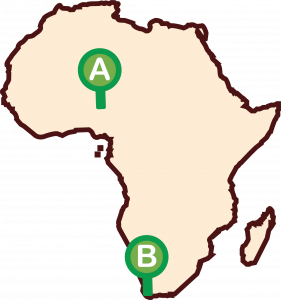Project Leads
The Problem
While modern HIV prevention and treatment have dramatically reduced the transmission of HIV from infected mothers to their infants, these children (also known as HIV exposed uninfected, or HEU) face much higher mortality rates than their HIV unexposed (HU) counterparts. Furthermore, HEU children have been shown to have different responses to vaccines than HU children. Finally, while it is known that breastfeeding these HEU children can improve their immune systems, it is unclear how this mechanism of protection operates, indicating that there is much to learn about the effect of breastmilk on the immune systems of HEU children.
Project Strategy
- To compare the microbes of breastmilk of mothers and gut microbiomes of infants (in both HIV+/HEU and HIV-/HU pairs) to understand the role of the breastmilk in child development.
- To investigate the immune response of vaccines in HEU and HU children, specifically monitoring how they affect microbial composition.
- To investigate the association between the genes of HEU children how their immune systems respond to vaccines.
Outcomes to Date
While the BEAMING project is in its infancy, the group has begun to lay the foundation upon which they will conduct their research in the coming years, establishing their core personnel and infrastructures that will efficiently enable them to execute out their strategy. Additionally, the project has made promising first steps into their key research aims with preliminary results indicating an effect of breastmilk microbiota on the gut microbiome of newborns. In the coming years, BEAMING will continue to make headway in answering their research questions, which could inform and influence public health policy in Africa and globally for generations to follow.
Project Sites

A: Nigeria
Institute of Human Virology
B: South Africa
University of Cape Town



